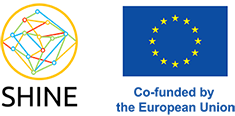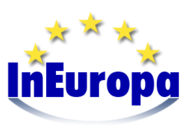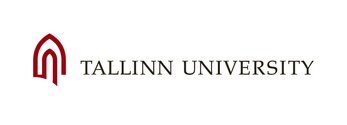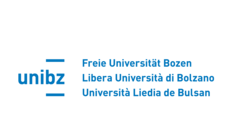
Project Meeting Bressanone

State of the Art Analysis
In order to gain an overview of the state of the art of systems thinking in the science subjects of the countries involved in the project, a comprehensive analysis of the curricula was carried out and projects to promote systems thinking in schools were investigated.
Teacher Training
The University of Bolzano has provided learning materials for the teacher training programme. The content is now being customised by the participating project partners for their training courses and translated into the respective national language. The Teacher Training Courses will be held in October and November 2024.
Game Development
Prototypes of the best ideas are currently being designed for the development of the game. At the next joint project group meeting, it will be decided which game is the most suitable and will be developed. Feedback from practical experience is already being incorporated into the considerations in the teacher training sessions.
SHINE - mainstreaming Systems tHinking In Natural sciences and Environmental education
Agreement number: 2023-1-DE03-KA220-SCH-000158255
ERASMUS PLUS – Call 2023 Round 1 - KA220- SCH – Cooperation partnerships in School Education

It is five past twelve in terms of climate change. The effects are already clearly noticeable: severe droughts and dry spells, melting glaciers, rising sea levels and changes in the habitat of many animal species are just some of them. Storms and floods are occurring more frequently and more intensively. We need to act quickly. However, the factors that contribute to climate change are complex and interlinked.
Education plays an important role in raising awareness of the climate crisis and its effects. Encouraging the use of public transportation and promoting alternative energy sources are crucial steps to mitigate climate change. Other factors include sustainable land use, reducing emissions in industry and energy production promoting innovation and research and many others. By encouraging collaboration and adopting holistic solutions, we can work together towards a sustainable future for our planet. Welcome to the Shine research project.
To prepare future citizens to tackle the challenges posed by climate change, there is a push to promote the introduction and mainstream adoption of Systems Thinking (ST) skills within natural science education. This initiative entails educating in-service teachers on ST principles and how to integrate them into natural science curricula. Additionally, efforts will be made to support students in cultivating a Systems Thinking approach through game-based learning and innovative teaching methodologies in science education. The overarching goals are to reinforce scientific skills, facilitate deep learning of complex subjects, and encourage collaboration among students across different grades, spanning ages 8 to 16 years.
The initiative involves the delivery of localized training courses aimed at in-service teachers, facilitating their acquisition of essential knowledge regarding Systems Thinking (ST) principles. These courses will cover not only the implementation of ST within science and climate change education but also focus on the most innovative and effective didactic approaches for integrating ST into school curricula. Simultaneously, a comprehensive didactic toolkit will be developed, comprising an ST-Game, six didactic modules, and two assessment tools tailored to students aged 8-12 and 13-16 years. This toolkit will be translated into the languages spoken in participating countries. Furthermore, testing events will be organized specifically for schools in each participating country. These events are designed to catalyze the widespread adoption of ST within educational institutions, thereby fostering a culture of systems thinking at the school level.
We will be offering a free one-day training course for teachers in the respective national language in October / November, which will focus on teaching Systems Thinking in science lessons. In addition to the theoretical presentation of the concept, many practical applications will be presented and the teachers themselves will try out how Systems Thinking can be taught in a clear and playful way in the classroom.
Enquiries and expressions of interest in the training programme should be addressed to umweltbildung-ing(at)hs-rm.de.
The SHINE project aims to deliver various outputs, potentially customized for different age groups (8-12 and 13-16 years). These outputs include a digital toolkit featuring an educational cooperative game that merges board and digital elements. Additionally, the toolkit will offer six didactic modules designed to assist teachers in integrating Systems Thinking (ST) into their classroom practices using engaging and innovative lesson plans. Moreover, a set of assessment tools will be provided to evaluate student learning outcomes. Furthermore, the project will offer a training course tailored for teachers, introducing them to the principles of Systems Thinking (ST) and providing them with the necessary skills to effectively implement ST concepts in their educational environments. Anticipated outcomes of these initiatives include heightened awareness of climate change issues within schools and the development of ST skills through formal education.
RheinMain University of Applied Sciences
Contact:
Prof. Dr. Andreas Zinnen
Am Brückweg 26
D-65428 Rüsselsheim
Germany
E-Mail: umweltbildung-ing(at)hs-rm.de
https://www.hs-rm.de/
University of Applied Sciences RheinMain is the consortium leader of the Shine project. We are a dedicated team of lecturers, staff and students who have been involved in environmental education at schools and universities for years. We like to use concepts such as gamification, AI or explanatory videos to convince students of the importance of the topic and to change their actions with respect to climate change. Our expertise lies both in working with schools and in developing tools that support our mission.
InEuropa srl
Contact:
InEuropa srl
Via P. Giardini 476/N
41126 Modena
Italy
E-Mail: ineuropa(at)ineuropa.info
www.progettareineuropa.com
InEuropa srl is an Italian company founded in 2006 by experts that have been working for over 20 years on EU projects, with the aim of supporting public and private bodies in accessing European financial opportunities. Education, training, youth, culture, environment, social issues, research and innovation are its main fields of work. InEuropa also participates in its own European projects, which are mostly aimed at increasing knowledge and awareness on environmental challenges and behavior change developing experimental non-formal training paths, targeting schools, young people and adults.
Tallinn University
Contact:
Tallinn University
Narva str 25
10120 Tallinn
Estonia
E-Mail: eco@tlu.ee
https://www.tlu.ee/
Tallinn University is the largest humanities university in Tallinn and the third largest public university in Estonia, with over 7,000 students (9.5% international) and nearly 1,000 staff. Founded in 2005 through the consolidation of several universities and institutes, TU is known for its innovative and enriching approach to research and education. Institute of Ecology and The Centre for Educational Technology (CET) have extensive experience in sustainability education and the design of educational applications, and have participated in numerous international projects. The university's new facilities provide state-of-the-art working conditions and technical resources for the project. Combined, we have extensive experience on the sustainability education and communication and on the design and deployment of educational applications (e.g. serious games) for addressing diverse learning objectives and needs for broad groups that range from primary and secondary to professional education. New facilities on the university campus provide state-of-the-art working conditions and technical resources, which offer an excellent environment for executing the project.
Free University of Bozen-Bolzano
Contact:
Free University of Bozen-Bolzano
Universitätsplatz 1 - piazza Università, 1
Italy - 39100, Bozen-Bolzano
E-Mail: federico.corni@unibz.it
multilab@unibz.it
https://www.unibz.it
The Libera Università di Bolzano (UNIBZ) is a multilingual University located at the crossroads between the Italian and the German cultural and economic worlds. Multilingualism and internationality are its main characteristics as shown by the composition of its academic staff (31% of tenured professors and researchers are of international origin) and its exchange programmes with about 150 partner universities all over the world. There is also a significant presence of international students (10,7%. The national average is 4,2%).
Virtual Campus Lda
Contact:
Virtual Campus Lda
Trv Nova da Giesta, 437 5et
4425-672 Maia
Portugal
E-Mail: manager(at)virtual-campus.eu
https://virtual-campus.eu/
Virtual Campus Lda. is a development, training and consulting company in the areas of Technology Enhanced Learning and Serious Games. The company has over 10 years of experience in managing and participating in EU funded projects, having worked in projects in the field of educational technology, health and industry, addressing diverse target groups, and building different domains and platforms.




